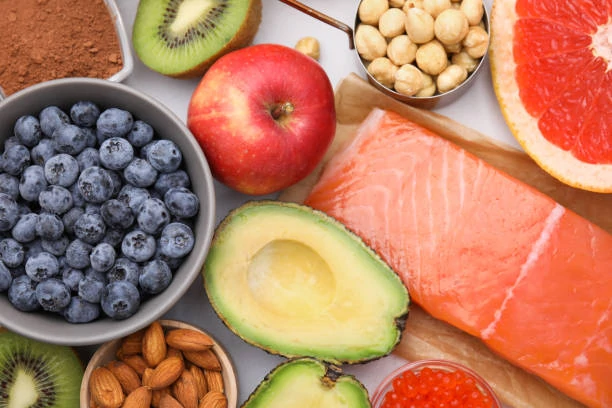Nutrition is the cornerstone of good health, and its importance varies across different stages of life. From infancy to old age, our bodies have unique nutritional requirements that must be met to support growth, development, and overall well-being. In this article, we will explore the nutritional needs of individuals at different ages, from infants to seniors, and provide guidance on how to achieve optimal nutrition throughout the lifespan.
- Infant Nutrition:
The first year of life is a period of rapid growth and development, making proper nutrition crucial for infants. Breast milk is the ideal source of nutrition for newborns, providing essential nutrients and antibodies that support immune function and healthy growth. For infants who are not breastfed, infant formula is a suitable alternative. As infants grow, the introduction of solid foods should be carefully timed and include a variety of nutrient-rich options, such as pureed fruits and vegetables, iron-fortified cereals, and small amounts of protein-rich foods like meat, fish, and tofu.
Key Nutrients:
- Breast milk or formula (until 6 months)
- Iron-fortified cereals
- Pureed fruits and vegetables
- Protein-rich foods

- Child Nutrition:
During childhood, proper nutrition is essential for supporting growth, cognitive development, and overall health. Children need a balanced diet that includes a variety of nutrient-dense foods to meet their evolving nutritional needs. This includes plenty of fruits, vegetables, whole grains, lean proteins, and dairy products. Encouraging children to try new foods and involving them in meal planning and preparation can help establish healthy eating habits that last a lifetime.
Key Nutrients:
- Fruits and vegetables
- Whole grains
- Lean proteins (e.g., poultry, fish, beans)
- Dairy products (or alternatives rich in calcium and vitamin D)

- Teen Nutrition:
The teenage years are marked by rapid physical growth and increased energy needs, making proper nutrition especially important during this stage of life. Teenagers require a diet rich in nutrients to support their active lifestyles and development. Encouraging healthy food choices, such as whole grains, lean proteins, fruits, vegetables, and healthy fats, can help teens meet their nutritional needs and maintain optimal health.
Key Nutrients:
- Whole grains
- Lean proteins
- Fruits and vegetables
- Healthy fats (e.g., avocados, nuts, seeds)

- Adult Nutrition:
As adults, maintaining a balanced diet is key to promoting overall health and preventing chronic diseases. A diet rich in fruits, vegetables, whole grains, lean proteins, and healthy fats can provide the essential nutrients needed to support metabolism, energy levels, and overall well-being. Additionally, staying hydrated and limiting the intake of processed foods, sugary beverages, and excessive alcohol can help adults maintain a healthy weight and reduce the risk of obesity-related health issues.
Key Nutrients:
- Fruits and vegetables
- Whole grains
- Lean proteins
- Healthy fats
- Adequate hydration

- Senior Nutrition:
In later life, nutritional needs may change due to factors such as decreased appetite, changes in metabolism, and age-related health conditions. Older adults require a diet rich in nutrients that support bone health, immune function, and cognitive function. This includes plenty of calcium-rich foods for bone health, as well as foods high in antioxidants and omega-3 fatty acids to support brain health and reduce inflammation. Additionally, staying hydrated and consuming foods rich in fiber can help older adults maintain digestive health and prevent constipation.
Key Nutrients:
- Calcium-rich foods (e.g., dairy products, leafy greens)
- Antioxidant-rich foods (e.g., berries, nuts, seeds)
- Omega-3 fatty acids (e.g., fatty fish, flaxseeds, walnuts)
- Fiber-rich foods (e.g., whole grains, fruits, vegetables)
- Adequate hydration

Meeting nutritional needs at every stage of life is essential for promoting optimal health and well-being. By focusing on nutrient-rich foods and adopting healthy eating habits early on, individuals can support their growth, development, and overall health throughout the lifespan. Whether you’re feeding a newborn, a teenager, or an older adult, prioritizing nutrition is key to living a healthy and fulfilling life.














Leave a Reply